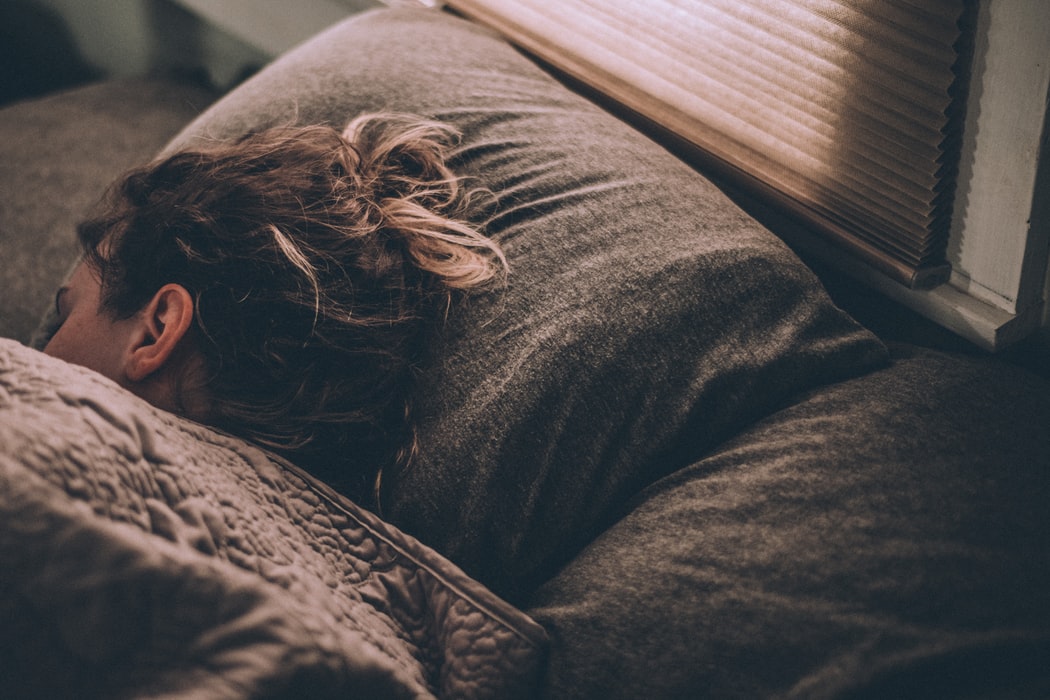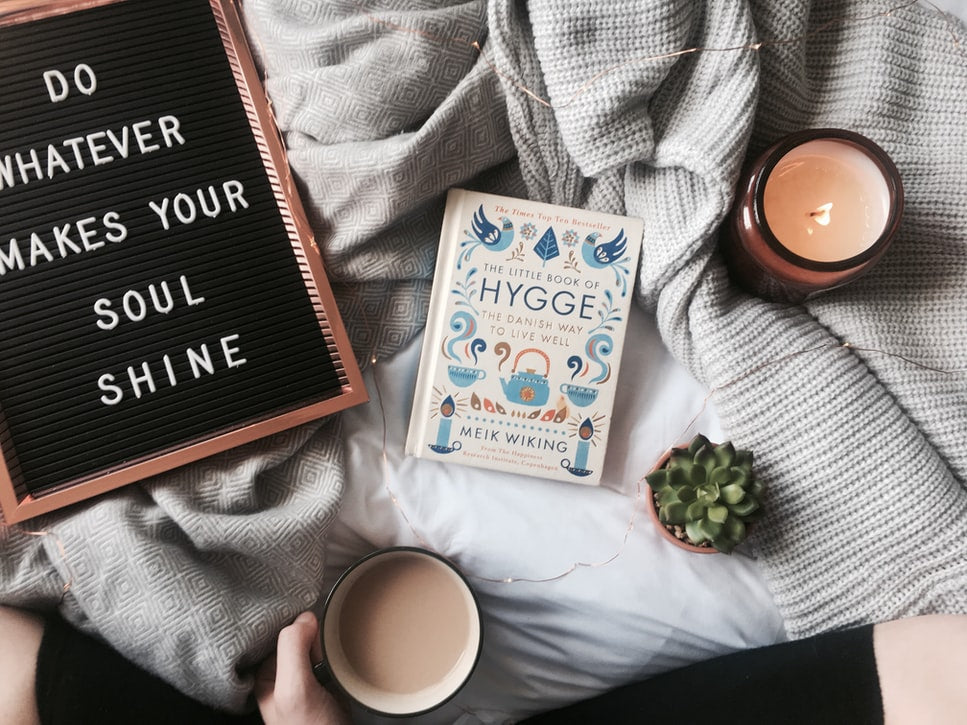
32 Ways to Beat Winter Blues
Combat the winter blues with these science-backed methods.
Author:START READING
Related ARticles
- The Ultimate Winter Self-Care Guide
- Ways to Beat the Winter Blues
- Winter Blues vs Seasonal Affective Disorder
What is Winter Blues Syndrome?
10-20% of Americans experience winter weather blues each year.
The winter blues occurs during the fall and winter months when sunlight is limited. Those with the winter blues experience a lack of energy, motivation, and dread due to the colder climate.
The fundamental cause of the winter blues is sun deprivation. When we lack sun exposure, our serotonin and melatonin levels deplete, disrupting our energy, sleep, and mental well-being.
Seasonal Affective Disorder vs. Winter Blues
Seasonal Affective Disorder (SAD) is the more extreme version of winter blues. Those with SAD might experience more intense:
- Energy depletion
- Lack of motivation
- And adverse mental health.
While curing the winter blues may be more straightforward, SAD may require treatment from a mental health professional.
Dealing with the winter blues is manageable. It simply requires the right steps to enhance your lifestyle and promote better mental/physical health. These 32 tips for beating the winter blues offer comprehensive and actionable ways to combat the side effects of those dark and cold months.
Healthy Habits

Take Care of Your Skin
We tend to take our skincare routines for granted during the spring and summer seasons. We are outside more, in contact with sunlight, and get a healthy amount of humidity—all key to healthy skin. Winter months are a different scenario. Our skin becomes dry, more prone to acne, and doesn't feel as good.
Studies on skincare have linked it to helping with mental health. Skin conditions such as acne can lead to:
- Lower self-esteem
- A sense of helplessness
- And depression.
Taking care of your skin can help boost your self-confidence and mental health.

Eat foods that give you energy
A healthy amount of energy is vital to sustainable and healthy mental health. Studies have shown that there are direct correlations between low energy and psychological disorders. Implementing healthy foods can significantly boost your energy and mood levels. It can also give you the vitamins to help with the winter blues.
Try these nine foods Healthline recommends:
- Fatty fish
- Dark chocolate
- Fermented foods
- Bananas
- Oats
- Berries
- Nuts and seeds
- Coffee
- Beans and lentils
Try to avoid foods that are high in sugar and processed. While these may be tempting, they can cause you to crash, negatively impacting physical and mental health.

Focus on Your Wellness
Wellness has gained a lot of popularity over the past years, and for good reason. It is vital to stable mental health, feeling fulfilled, and being positive. There are many ways to improve wellness, but only you know which may be right for you.
Start by experimenting with meditation, yoga, journaling, and more. These activities retrain your mindset, calm negative emotions, and foster positive thoughts.

Focus on a Healthy Sleep Habit and Schedule
Getting a minimum of seven hours of regular sleep on a normal schedule is vital to your health. Winter tends to mess up our sleep schedule. We either sleep too much or too little during this time of year.
It's also essential to build healthy sleep habits. Consider these sleep tips:
- Sleep without any noise or TVs on. This will help you sleep deeper and longer.
- Try sleeping in temperatures of 60 to 67 degrees Fahrenheit. Your body temperature decreases as you initiate sleep. These temperatures increase sleep quality.

Don't Hesitate to See Your Doctor
While you may not consider it necessary, your doctor can recommend different ways to keep your winter blues at bay. They may also pinpoint where you struggle and decide if medications may or may not help.

Replace Bad Habits with Good Ones
Winter can be a time for you to focus on developing better habits. Take the time to replace bad habits with better ones. Not only does this pass the time, but it increases your self-confidence, quality of life, and overall well-being. List the habits you'd like to change and create an action plan.
Physical Activity

Exercise in a Way That's Easy for You
Exercise is one of the more obvious methods. However, it can be challenging to stay motivated. Try finding a training method that suits your interests, lifestyle, and schedule.
If you're not a gym fan, try workout programs you can do at home. Another way is to try indoor sports (such as rock climbing) that you may find interesting and fun.

Spend Time Outside
Nothing will help like being outside, around nature, and in contact with natural sunlight at the end of the day. Try getting out every day or whenever possible. Even going out when it's cloudy can help you benefit from natural sunlight.

Get a Pet
Having pets around can give you the companionship you always needed. Having a pet can provide a sense of security and is proven to alleviate:
- Stress
- Anxiety
- Depression
- And feelings of loneliness and social isolation.
Mindfulness & Relaxation

Go to the Spa
Spa treatments offer many health benefits. They help:
- Reduce stress
- Promote better sleep
- Ease aches and pain
- Improve blood circulation to fight illness
- And make you happier by promoting serotonin release.
Start by scheduling one spa treatment and, if it helps, making it a regular occurrence.

Meditate
Meditation is an old practice with many benefits. It involves silencing one's thoughts and focusing on breathing. Research proves that this helps reduce stress, gain mental clarity, and assist with mental disorders such as depression. Many types of meditation exist, and you can easily practice all of them in the comfort of your home.

Manage Stress with Aromatherapy
Aromatherapy is the act of using essential oils to:
- Rub on one's skin
- Ingest
- Or diffuse into a vapor form.
Producers extract essential oils from flower, herb, and tree parts, such as:
- Bark
- Roots
- Peels
- And petals of plants such as lavender, lemon, and cedarwood.
Aromatherapy is commonly used to ease stress, relax, improve sleep, and reduce pain. If you experience any of those ailments, aromatherapy may be worthwhile trying.

Read a Book
Much like movies and TV shows, books offer a form of escape from everyday stress. Not only this, but they promote better cognitive function. Many successful people make it a habit to read every day. Doing so flexes your memory muscle and improves your ability to learn new things.

Try the Art of Hygge
Hygge (pronounced hue-guh, not hoo-gah) is a Danish term and way of life created to promote simplicity, happiness, and presence. It's not anything you can buy, but rather a method of creating rituals, such as:
- Drinking coffee in the morning
- Slowing yourself down
- And enjoying that given moment.
This lifestyle allows one to develop gratitude, peace, and a sense of balance in life. By slowing down, one escapes one's daily responsibilities and builds inner peace.

Get Away from Electronics
Our cell phones tend to take us away from being in the present. They're proven to have adverse mental effects that lead to depression, anxiety, and obsessive-compulsive disorder. It seems we've become addicted to our phones, which has taken us away from being present.
Try to detach yourself from all electronics and be in the moment. This will help build a sense of peace and better allow you to connect with others.
Positive Mindset & Environment

Create Your Fall and Winter Survival Plan
Planning out your fall and winter will reduce the overwhelming feelings that come with this time of year. Create a calendar of things you'll do daily to keep your physical and mental health in check and shake off the winter blues.
Start in September when the days become shorter and continue through April. These actions can include a daily checklist, a list of best practices, or even a schedule of events. Planning aims to keep you in motion and doing the things needed to overcome the winter blues.

Try Out a New Look
Changing your wardrobe is proven to boost your self-confidence. Enclothed cognition is a term used to describe clothes' psychological impact on people. For example, a test found that wearing a lab coat improved one's carefulness and attentiveness.
The symbolic meaning and psychological experience of wearing the clothes impact the effect. In short, try out a new wardrobe and experiment on how it affects your mentality. You'll find the right outfits, which may boost your confidence and mental health.

Brighten Up Your Environment
Fall and winter bring less natural light into our homes. Only then do we see the light's effects on our well-being.
Light is essential to living healthy, happy lives. Light can impact our mental health, sleep, and energy levels. We fail to realize this until our homes are dark, leading us to:
- Feel less motivated
- Lean toward negative thoughts
- And sleep more than before.
Try adding additional lights designed in color and style to meet your needs or a therapy lamp if you feel stronger symptoms. Users sit in front of light boxes for 20 to 30 minutes each morning to simulate sun exposure.
Light therapy lamps are a safe and effective method for getting through the winter blues.

Add Indoor Plants to Your Home
Adding indoor plants to both your work and home environment can have many advantages:
- They keep you relaxed and lower anxiety. Being around plants has a calming effect, lowering negative emotions such as anxiety.
- They increase your focus and memory. Studies show that being around plans (at home or work) increases your attention span by 20%.
- You're able to stay motivated longer. Another study found that those working around plants were able to be more productive.
- By caring for plants, your stress levels are reduced, and experience better moods.
- You become more creative. People surrounded by plants and greenery are 15% more creative.

7. Buy a Dawn Simulator
People struggle during colder months because their circadian rhythm is misaligned. In short, your circadian rhythm is your body's internal wake/sleep schedule. When fall and winter roll around, it becomes thrown off due to the lack of sunlight and shorter days.
Dawn simulators are a great way to combat this. They trick your circadian rhythm by mimicking sunrises and sunsets using a timed light.

Listen to Mood Boosting Music
Music is a crucial cornerstone of our cultures, lives, and daily activities. And rightfully so. Numerous studies prove music has many mental health benefits, boosting your mood being one of them. Try to implement more happy music into your daily routines. It's a cheap and effective way to improve your spirits and mood.

Embrace, Don't Resist Winter
It's perfectly normal to resist anything we don't like, especially in winter. Try a mindset shift; instead of dreading winter, embrace it. Write down everything you dislike about winter and propose a solution to it.
For example, if you don't like winter because of the darkness, propose:
- Adding lights
- Doing light therapy
- And making an effort to get outside.
This kind of thinking will make combating winter blues easier and more effective.

Express Gratitude Daily
Several studies show that people who show gratitude regularly are:
- Happier
- More content with life
- And cope better with stress.
They can see more positive than negative, a key happiness trait. Start practicing daily gratitude by writing down what you're grateful for or pointing out the positive things in your life. You'll feel your mental state improves and will cope with stress more healthily.
The winter blues can be hard to overcome. Taking the proper steps and actions can make surviving winters easier and more fun. Just remember that not everyone is the same. Sometimes, finding what fits your personality and lifestyle takes trial and error.
Related Resources
About the Author

Brandon Landgraf is the Digital Marketing Manager for Carex Health Brands. He finds passion and fulfillment in creating content that enhances, improves, and enlivens others' quality of life. All of his written work is formulated to not only offer essential advice and tips but back it with proven studies and experts. His mission is to connect with readers and provide steps to make their lives better.
About Carex Health Brands
Carex is your one-stop shop for home medical equipment and for products that assist caregivers with providing the best possible support and care for their loved ones. Carex Health Brands has been the branded leader in in-home, self-care medical products for over 35 years. Our goal is to improve the lives of our customers by bring them quality products that bring dignity back to their lives. With our three nationally distributed brands, Carex Health Brands serves national, regional and independent food, drug and mass retailers along with wholesalers, distributors and medical dealers.
related posts
Rollator Buyer's Guide: How to Choose a Rollator
If you or a loved one has been having issues with mobility, you may be considering purchasing a rollator. This guide will walk you through everything you need to know, including who should use a rollator, the types of rollators, and what to look for when shopping, so that you can be sure to make the best choice.
Decoding Your Body Clock: Understanding Circadian Rhythm Disorders
Up to 3 million people have one, but what is a circadian rhythm sleep disorder? Explore the various types, causes, and more to understand better.
Pain Relief Product Quiz
Answer seven questions for a personalized recommendation based on your pain relief needs.
11 Expert-Backed Methods on How to Get Up Early
Tired of waking up groggy? If you’re searching for the best way to get up early, look no further. This definitive guide gives you 11 expert-backed methods to reset your sleep schedule and conquer the snooze button. Learn proven technical and mental tricks to get up early in the morning, from optimizing your sleep environment and establishing consistent routines to finding your ultimate motivation. Stop stressing over your alarm and start winning back your mornings with actionable tips for waking up early that actually work!






Social Connection & Hobbies
Plan a Getaway, Even if it's Close By
The simple act of planning an adventure can raise your spirits. It takes your mind off stressful thoughts and gives you something to look forward to. If you can't get far from home, try googling local areas of interest. Create a hit list of places to visit and things to do that are close by.
Get Involved in Your Community
Getting involved in volunteer work can have significant benefits for your physical and mental health. The social aspect of volunteering not only offers an escape but aids in relieving stress, anger, and anxiety.
And if that's not enough, volunteering gives you a sense of purpose, increases your self-confidence, and makes you happy. Try looking into local non-profits to volunteer with. It will get you out of your house and around people and make you feel better about yourself.
Focus on What Makes You feel Fulfilled
One of winter's many side effects is the depletion of motivation. This causes us to neglect things that make us fulfilled, which is vital to good mental health.
Fulfillment brings meaning and purpose to our lives. If we lose that, we develop a negative mindset and psychological disorders. Write down a list of activities that bring meaning to your life. Make an effort to integrate them into your daily routine, regardless of how unmotivated you may feel.
Spend Time by Fire
If you're like most people who dislike winter, it's because of the colder weather. A study from the University of Alabama found that sitting by a fire lowers blood pressure and relaxes you. Not only this, but sitting by a fire offers a social setting unlike any other. If you hate the cold, try setting up a fire to combat the winter blues.
Stay Social with Good People
Who you interact with is essential to a positive outlook. Your social life is critical to mental health. Be sure to surround yourself with friends or family who support and encourage you.
Being around people you connect with and can go to when you need help is essential. They can play a significant role in both helping and hurting your mental health.
Check Something Off Your Bucket List
We tend to go into hibernation mode because we're confined indoors for most of fall and winter. We spend most of our time watching TV and using social media, which can be detrimental to our mental well-being.
Try doing something that's always been on your bucket list. It can even be the simplest of things. Doing so will boost your mood and make you feel better about life.
Watch Funny Shows and Movies
Laughing is a proven method for raising one's spirits. Studies have shown that laughing reduces emotions of stress, anxiety, tension, and depression. Not only this, but it elevates mood, self-esteem, hope, energy, and vigor.
The positives of laughter are endless. Try watching shows and movies relevant to your humor that invoke laughter.
Laughing is a proven method for raising one's spirits. Studies have shown that laughing reduces emotions of stress, anxiety, tension, and depression. Not only this, but it elevates mood, self-esteem, hope, energy, and vigor. The positives of laughter are endless. Try watching shows and movies relevant to your humor that invoke laughter.
Stay Organized with Important Tasks
As our motivation depletes, so does our productivity. This can lead to feeling overwhelmed and procrastinating. It's vital to combat this by staying organized.
Develop organizational methods based on your work style. This will keep your to-do list down and prevent it from becoming an issue. Try to plan each month in advance, especially at the beginning of fall. That way, you can keep yourself motivated and avoid being overwhelmed.
Start an Indoor Hobby
Hobbies are a perfect way to distract one's self and pass the time. They provide an outlet for stress relief and often promote creativity. When you can't get outside, the right hobby can temporarily replace any outdoor activity. Here's an excellent list of 68 indoor hobbies to get you started.